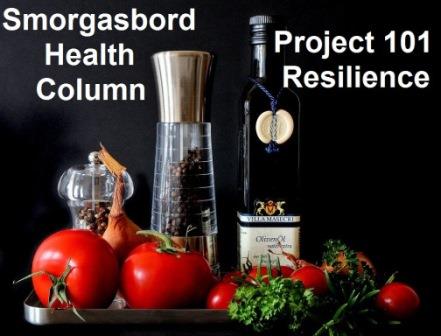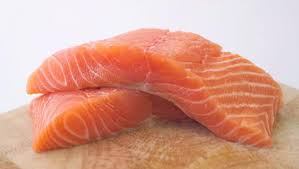
Project 101 – Resilience is aimed at developing a strong immune system and a body that can fight off disease at any age. One of the key factors in achieving that level of robust health is being a healthy weight. There have been a number of risk factors identified that put certain groups of the population at a higher risk of a critical outcome from being infected with Covid- 19 – Opportunistic pathogens like nothing better than an acidic environment to thrive in.
Health and energy and long life all begin with a correct pH balance.
The pH balance refers to the acidity or alkalinity of every living organism. The scale for measuring this balance is called Potential for Hydrogen or pH balance and each system or organ has its optimum balance for health. The scale goes from 0 to 14 with 7.0 being neutral with anything above 7 as alkaline and anything below 7 being acidic. Each step up or down is ten times the previous which means that even a change of .1 will have an effect on your body. Part Two can be found Here
Part Three – Achieving the correct pH balance in your body – The Plan

A really good alkaline start to the day is the juice of half a lemon in hot water. Despite being an acid fruit, lemons are alkaline forming and also get your intestines moving. It also gives you a jolt of vitamin C.. I use an enamel protecting toothpaste and that is one thing to consider when having lemon juice every day.
Rotating your foods is always a good idea as most of us can build up an intolerance to foods that we eat every day and this can have an acidic effect on the body. I have given you some guidelines for rotating certain foods such as carbohydrates to not only get the maximum benefit from them but to also minimise any intolerances you might have.
Carbohydrates are 30% of your daily intake

The latest word from some of the experts in the field of nutrition is that you should drastically limit your grains in your diet. There is certainly evidence to suggest that a high intake of refined grains are not beneficial and might lead to health problems.
However, there is one very good reason for that. They are industrially produced and contain little nutrition, too many additives and usually a lot of added sugar. If you eat a great deal of cookies, processed white bread, certain breakfast cereals and cakes you will be ingesting sugars which are highly acidic.
A proportion of your diet should include wholegrains that have been minimally processed so that you obtain all the nutrition including B-vitamins that are stripped when refined. You also need the fibre they contain and by eating wholegrains you can reduce your protein levels and help reduce their acid content.
Suggested Carbohydrates
Whole-wheat or wholegrain bread, whole-wheat Pitta breads, shredded wheat, whole-wheat pasta, Rye Crisp breads, Pumpernickel, mashed parsnip. Cornflakes, Corn Tortillas, Porridge oats, sugar free muesli, Brown Rice, oatcakes, potatoes.
As you will see I have grouped these together in approximate wheat, corn, rice and oat days with the occasional potato thrown in. If you have a wheat intolerance only eating it every 4 to 5 days may well help you with any related allergy symptoms. Your body is designed to remove toxins from the body efficiently provided you are only eating them every four or five days.
Proteins and fats – Rotate so that you are eating them at least 3 or 4 days apart and they should only be 20% of your daily intake
We need protein and also some acid forming foods in our diet otherwise the balance goes too far the other way. We also need healthy fat and apart from extra virgin olive oil, some grass fed real butter (more Vitamin K2) lean protein with a little fat is not harmful. If you do not suffer from arthritis or acid digestive problems, eating a little more lean protein should not be a problem.

Select lean meat beef, lamb, fish both healthy fat varieties such as salmon and white fish, chicken, turkey, Feta cheese, eggs etc.
- Try to have red meat only once a week.
- Try to get organic if you can but good quality anyway.
- Use olive oil for cooking and on bread wherever possible.
- Use grass fed dairy butter as a spread rather than hydrogenated margarine.
- For snacking eat walnuts (14 per day), almonds, Seeds such as pumpkin (all unsalted).
- Use avocado a couple of times a week as a vegetarian alternative. You can also use tofu but watch any fat it is mixed with.
Avoid salted processed meats such as bacon and ham except for once a week.

Fruit and Vegetables minimum 50% of diet. Eat raw or steamed to retain as many of the nutrients as possible.
Figs, olives, apricots (dried as snack three), avocados, carrots, Spinach, Cabbage, Dates (three on salads), kiwis, limes, raspberries, strawberries, asparagus, bananas, celery, beetroot, melon, lettuce, parsley, pineapple, pomegranate (if available) nectarines, cherries, grapefruit, tomatoes, cucumber, cauliflower, lemons, string beans, peaches, mushrooms (shitake if not too expensive), watermelon, courgettes, apples and pears.
If you like to drink fresh fruit juice, unsweetened are best – they are available freshly squeezed in the supermarket or make at home, but need to be drunk on the day. I do suggest especially if you are trying to lose weight that you dilute with some sparkling mineral water, halving the sugar content. Most fruit juices are made with the higher sugar variety including oranges which burns to an acid ash. I suggest going with vegetable juices such as carrot.
I have dropped most fresh fruit juices except for the occasional fresh pressed apple juice, but I do drink a large glass of coconut water every morning about half an hour before breakfast. Apart from being a good source of potassium that helps maintain my blood pressure at a healthy level, it also helps maintain the alkaline/acidic balance in the body.
N.B – A word of warning about coconut water and exercise. Some gym goers were fainting after their exercise session and when questioned they had drunk a full litre carton of coconut water – having already reduced their blood pressure by vigorous activity, they then dropped it even more by drinking a potassium rich drink!
Drink plenty of water, herbal teas, a daily green tea and a cup of coffee two or three times a week.
N.B The above guidelines are suggested to reduce your acidity especially if you are already experiencing related chronic diseases such as arthritis.
- After six weeks you should experience more energy, better skin tone and less of the aches and pains we associate with getting older.
- Make a note of your symptoms such as joint pain, headaches, lack of energy at this point and then make a note of how you are feeling each week.
- I would be interested to get your feedback at the end of the six weeks.
 Earlier in the series I gave you some exercises to improve your lung function, by reducing stiffness and increasing oxygen flow.
Earlier in the series I gave you some exercises to improve your lung function, by reducing stiffness and increasing oxygen flow.
Our breath is much more than just an intake of oxygen. It is our connection to life itself as without air we would die. There are 4 parts to every breath,
The inhale, a moment’s pause, the exhale and another natural moment’s pause before the next inhale. Exhale usually longer than the inhale.
While you are watching this video and listening to the music practice this breathing pattern. (you can start with the count of 2-2-4-1 until you feel comfortable with the longer pattern)
- Inhale through your nose to the count of five
- Hold for the count of five
- Exhale through your mouth to the count of seven.
- Pause for the count of two
Music in combination with beautiful images and some slow deep breathing for just a few minutes can actually be very energising.. here is André Rieu – Song to the Moon uploaded by Sergei Egorov
©Sally Cronin – Just Food for Health – 1998 – 2024
I hope you have found useful and if you have any questions I am happy to answer here or by email. sally.cronin@moyhill.com

I am a qualified nutritional therapist with twenty-six years experience working with clients in Ireland and the UK as well as being a health consultant on radio in Spain. Although I write a lot of fiction, I actually wrote my first two books on health, the first one, Size Matters, a weight loss programme 20 years ago, based on my own weight loss of 154lbs. My first clinic was in Ireland, the Cronin Diet Advisory Centre and my second book, Just Food for Health was written as my client’s workbook. Since then I have written a men’s health manual, and anti-aging programme, articles for magazines, radio programmes and posts here on Smorgasbord.
If you would like to browse my health books and fiction you can find them here Sally’s books and reviews 2024
Your feedback is always welcome and if you do find that following any of the programmes that I have shared are beneficial then it would be great to hear about it.. you can email me on sally.cronin@moyhill.com.

Pingback: Smorgasbord Health Column – UnSeasonal Affective Disorder – The Missing Link – Vitamin D by Sally Cronin | Smorgasbord Blog Magazine
Pingback: Smorgasbord Health Column – Project 101 – Resilience – An opportunity to get fighting fit – Round Up – Sally Cronin | Smorgasbord Blog Magazine
Pingback: Smorgasbord Health Column – Project 101 – Resistance – Vitamin D Deficiency Part Two – Getting Sufficient – by Sally Cronin | Smorgasbord Blog Magazine
Pingback: Smorgasbord Blog Magazine – Weekly Round Up 21st -27th June 2020 – Josh Groban, Lemon Meringue Pie, #Ireland, Book Reviews, Authors and Humour | Smorgasbord Blog Magazine
I always learn something from you 🙂
LikeLiked by 1 person
Thanks Claire.. great to hear..hugs
LikeLike
I am loving series and learning much… I did know about coconut water and the gym enthusiasts..Hugs..will share on Saturday Snippets :).
LikeLiked by 1 person
Thanks Carol.. just had my morning glass but I might just miss the gym today! hugsx
LikeLike
I miss the gym everyday…. Hehe.. Hugs xx
LikeLiked by 1 person
Thank you Sally! Its really helpful for me too. Sounds like a good plan. May i ask you about citric acid powder. Can i use this instead of fresh lemon juice? 😉 Michael
LikeLiked by 1 person
Glad you found interesting Michael.. I would not ingest citric acid powder as it is especially formulated for cleaning products as a substitute for lemon juice. You can buy concentrated lemon juice which is useful if there are no fresh ones available in the baking aisle of the supermarket.. I use to sour milk for example when I am making my soda bread… hugsx
LikeLiked by 1 person
Thanks for the tip, Sally! I’d rather think a little bit, because I don’t want to drink something like cleaning products.
LikeLiked by 1 person
Love all this great info on the pH series. Thanks so much Sal ❤ xx
LikeLiked by 1 person
Thanks Debby… ♥
LikeLiked by 1 person
Very helpful, Sally. I hadn’t heard about gym enthusiasts fainting after drinking coconut water. It shouldn’t have made me laugh, but I’m afraid the image of it did 🙂
LikeLiked by 1 person
I know..all dressed up and looking the part!! Fit as a fiddle……xx
LikeLiked by 1 person
Thank you, Sally. This is really helpful information. ❤️
LikeLiked by 1 person
Thanks Jane, glad you found interesting..♥
LikeLiked by 1 person